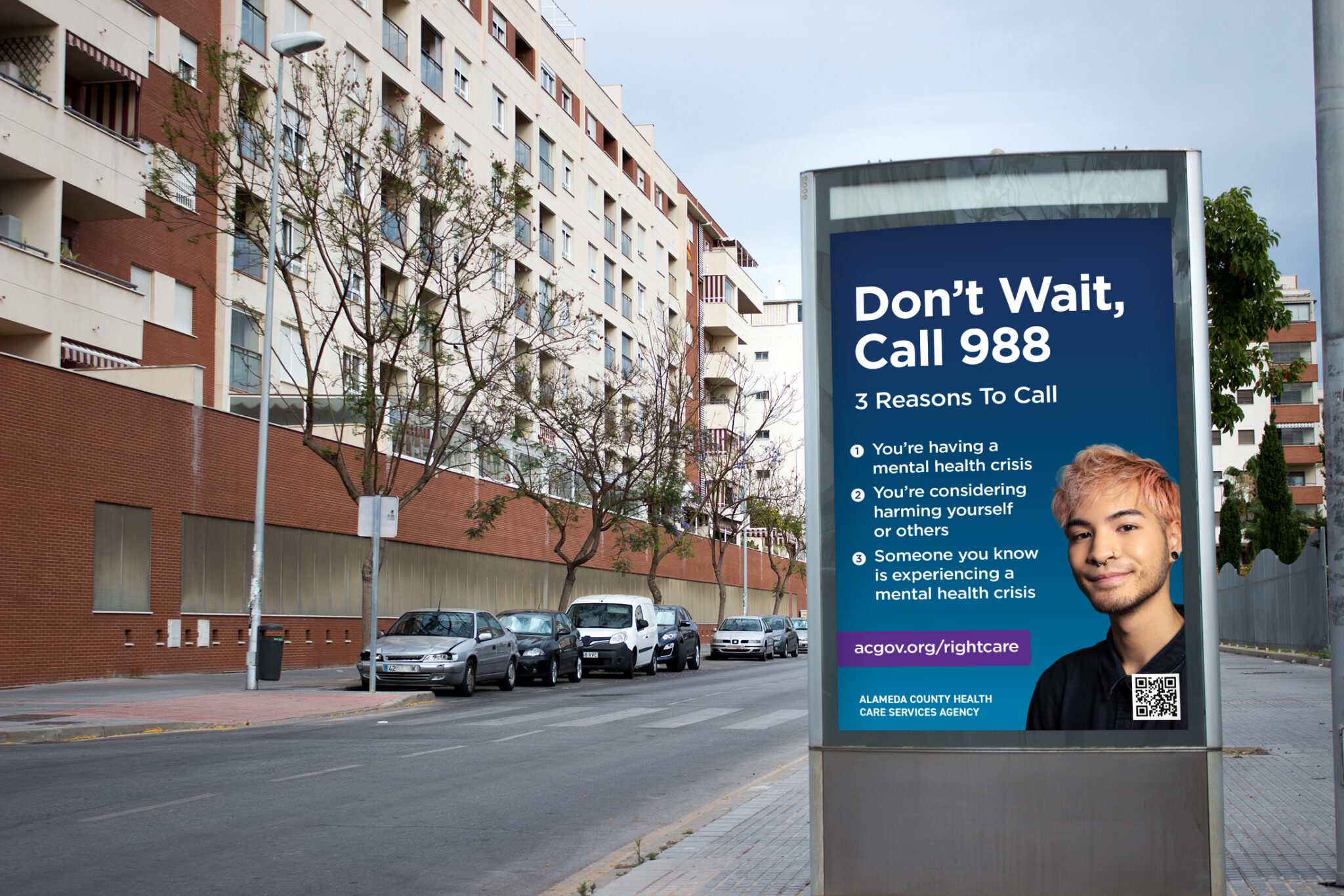Health Care Services Agency of Alameda County

Integrated Public Education Strategy & Implementation
In 2021, the Alameda County Emergency Medical Response (EMS) system provided medical transport for more than 84,000 calls across 4 priority categories and approximately 37 percent low acuity (priority 4). While the emergency state of the pandemic may be contributing to non-emergent use of the 911 call system, the current situation is not sustainable in the present model. The Health Care Services Agency has envisioned a future state for the EMS system in Alameda County that includes additional options for residents to receive the right care in the right place.

The Challenge
Navigating health care can be difficult, especially when individuals and families don’t have an established relationship with a health care provider. There are additional barriers for historically underserved communities, including English-language learner communities and low-income individuals and families. While traditional communications tactics may reach a broad range of Alameda County residents, speaking directly to underserved audiences requires a more intricate approach to bridge the gap in accessing high-quality services and inclusive health care opportunities.
The Goal
Educate and raise awareness about the available resources to support Alameda County residents in both emergency and non-emergency health situations by seeking the right care in the right place. The goal was to encourage residents to establish a relationship with a health provider for guidance on care options (primary care clinic, referral to specialty care, behavioral health care including 988) instead of relying on the 911 emergency response system for non-emergent care.
The Strategy
To effectively reach the target audiences, D&A developed and implemented a strategic integrated media campaign, Right Care, Right Place, to reach Alameda County families, youth, low income individuals, unhoused individuals, LGBTQIA+ individuals, undocumented individuals and Medi-Cal recipients. The campaign included efforts to engage Community Based Organizations (CBOs) and public health system partners (e.g., local, state and federal agencies, health care providers, non-profits) to ensure campaign messages reached audiences through traditional and nontraditional channels.
The Impact
The strategic approach helped to decrease the reliance on the 911 emergency response system for non-emergent care, ensuring that this vital service remains accessible to those facing immediate and life-threatening emergencies. The public education campaign helped to reduce barriers to health care resources by distributing easy-access information in five languages as well as in locations where unhoused residents and those without regular internet access had access (laundromats, street team workers, buses). The campaign was promoted via a dedicated landing page; customized targeted digital ads; organic social media; and out of home and radio ads to increase the campaign reach and impact. As a result, the Right Care, Right Place campaign reached approximately 243,500 residents (nearly 15% of Alamenda’s population) receiving equitable messaging to support their preventive care, mental health care and affordable care access.
In-Language
Integrated Public Education Campaign
243,500
Alameda Residents Reached
8.2M
Total Impressions
10
Community Organizations and Health Partners Engaged